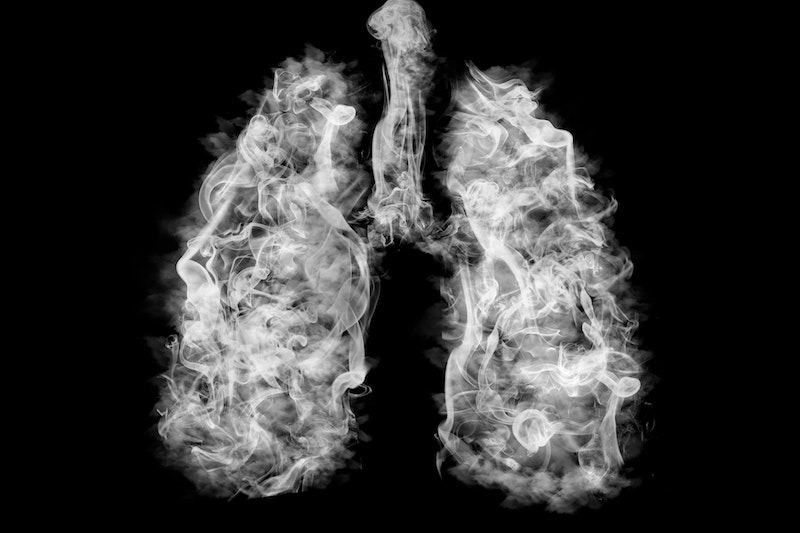Experts are just beginning to identify the lifestyle choices and underlying conditions that can raise a person’s risk for a severe COVID-19 infection. Something that many seem to agree on? Smoking and vaping can irritate the lungs, and may make it harder to fight off COVID-19. Which means now may be a better time than ever to put down your vape pen for good.
You probably already know that smoking is bad for your body, especially your lungs. Smoking suppresses the immune system and damages lung tissue, making it harder for the body to fight off respiratory infections. Emerging research suggests that vaping may hurt the immune system, too.
We now know that COVID-19 wreaks havoc on the lungs. If you’re a vaper, your lungs may already be irritated and fragile. That may make you more susceptible to any type of lung infection — including COVID-19.
Understanding COVID-19 risk
Having just one underlying condition can substantially increase your risk of developing severe COVID-19. Groups at higher risk for severe COVID-19 include those age 65 or older, as well as people with underlying health conditions such as chronic lung disease; moderate to severe asthma; serious heart ailments; diabetes; obesity; and immunocompromising diseases such as HIV.
-------------------
For more on the risks of vaping, visit Rally Health's Live Vape Free site for expert advice, help with quitting, and a guide on how talk to teens about vaping.
-----------------
Some risk factors may be out of your control, but smoking or vaping isn’t one of them. Some research suggests that smokers may indeed have a harder time fighting off the virus. “A person who smokes tobacco products may be at greater risk for, and may have a harder time recovering from, respiratory illnesses such as COVID-19,” said a spokesperson for the Centers for Disease Control and Prevention’s Clinician Outreach and Communication Activity (COCA) in an email to Rally.
The CDC says that the relationship between e-cigarettes and COVID-19 risk remains “uncertain.” But experts warn that there is reason for concern. The heavy metals in e-cigarettes are known irritants that can cause coughing, wheezing, or shortness of breath when inhaled. Lungs that are already irritated may be more susceptible to COVID-19 symptoms, as Carolyn Dresler, MD, former associate director of medical and health sciences for the Center for Tobacco Products at the Food and Drug Administration, explained during an April 2 webinar for the nonprofit group Action on Smoking and Health.
“It is critically important for us to help people quit inhaling anything into their lungs that could be causing any type of inflammation,” Dresler said, “as the coronavirus will only find an inviting environment otherwise.”
If you vape, it isn’t just your own health that you need to think about. As with cigarettes, e-cigarettes also can potentially harm others through aerosol exposure. “Most of the same things that are inhaled in the lungs from the e-cigarette are also exhaled as secondhand aerosol,” says Brian King, PhD, deputy director for research translation for the CDC’s Office on Smoking and Health.
Using a vape pen can also increase the sort of hand-to-mouth contact identified as one of the methods responsible for transmitting COVID-19 from a contaminated object, as an advisory from the Massachusetts attorney general and Massachusetts General Hospital recently warned. Social sharing of e-cigarettes can raise transmission risk as well. Two more reasons to quit.
Time to heal
You might wonder how much difference it can make in the short term to quit vaping, especially if it’s something you’ve been doing for years. Our bodies, though, are remarkably resilient.
There isn’t much research showing what happens after you quit vaping, but a lot is known about how quickly your body starts healing after you quit smoking. Your blood pressure and heart rate drop almost immediately. Your risk of heart attack goes down after just 24 hours, and you may breathe easier and have more stamina in just two weeks.
Your immune system also will function better. The cilia, the tiny hair-like projections that sweep your airways free of mucus and dust, are one of the first things to start to heal in your body. And that’s important, since these guys help you fight off colds and other infections.
Quitting isn’t easy, but considering that both smoking and vaping may depress your immune system and may increase some of your risk factors for COVID-19, now is a perfect time to try.
JENNIFER THOMAS
Rally Health





